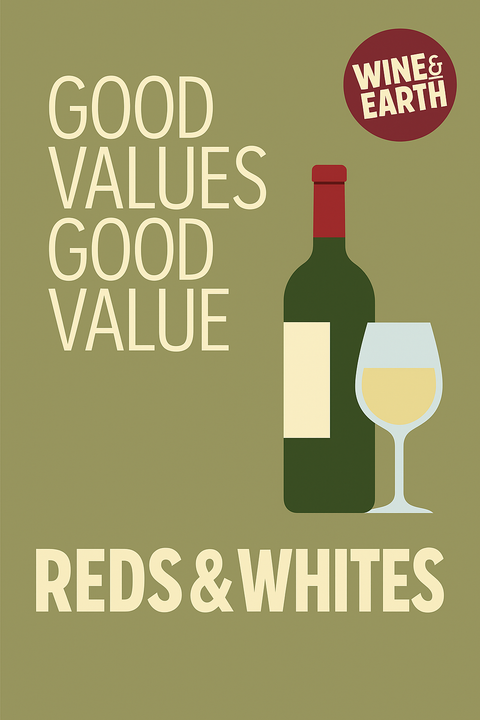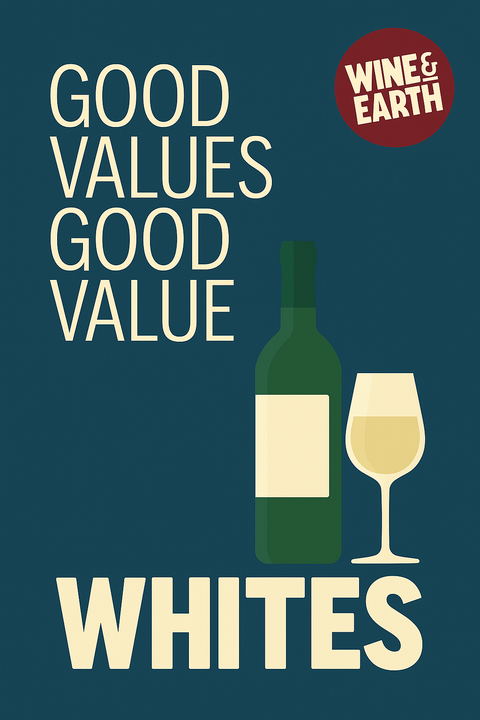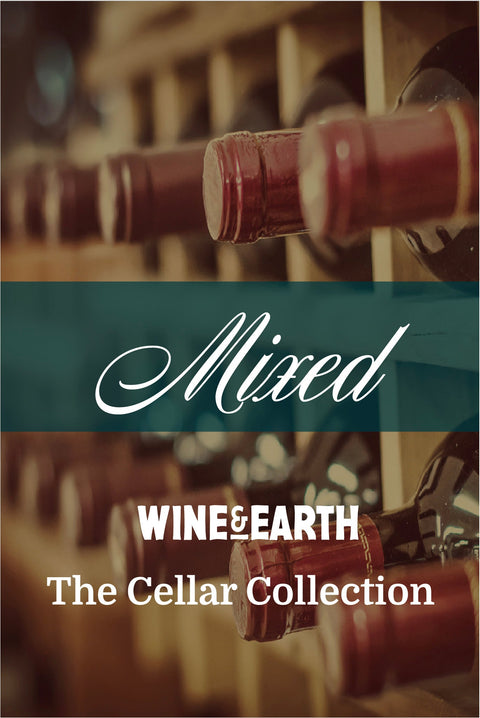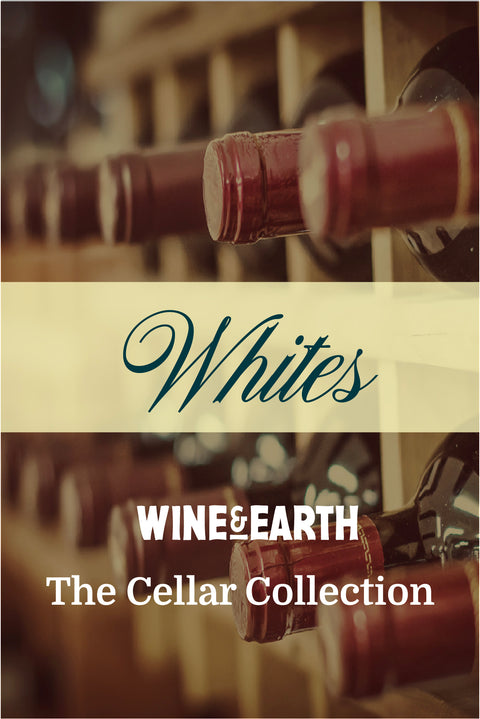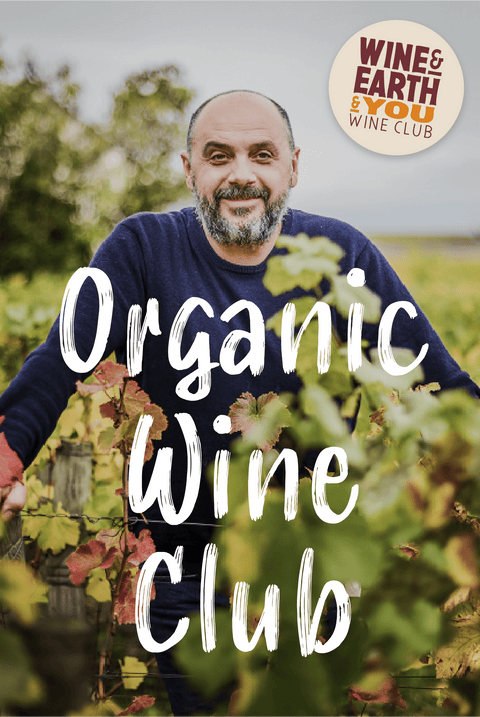Try out a range of sustainable wines
Sip, Savour and Save!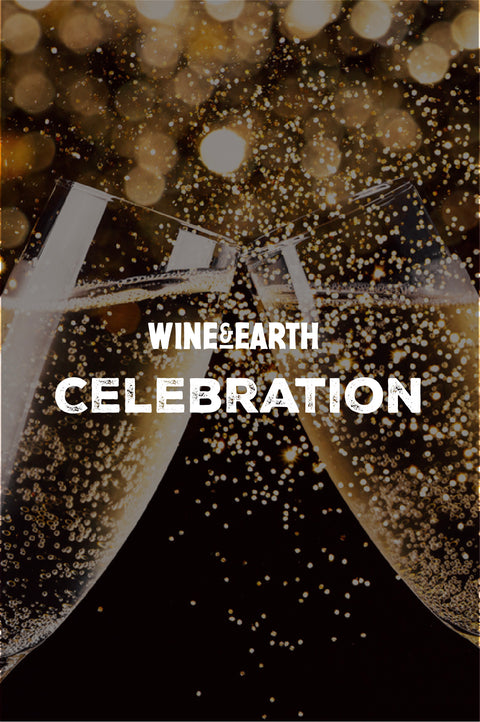
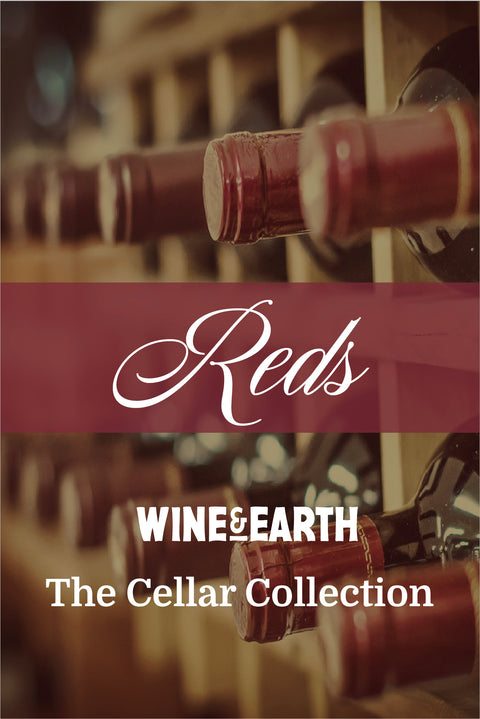

Stellenbosch, South Africa
100% Cabernet Sauvignon | 13.0% ABV
We are proud to present this South African red wine made from 100% Cabernet Sauvignon grapes, the flagship varietal of Le Bonheur Estate. This Cabernet Sauvignon epitomises classic Stellenbosch Cabernet from the Simonsberg - South Africa's most celebrated wine ward. With deft use of oak and meticulous blending, this wine presents fine balance and excellent aging potential.
It displays a dark ruby red. On the nose it shows classic notes of dense blackcurrant, cedarwood and subtle hints of pencil
shavings and dark chocolate.
On the palate it is full-bodied, with supple and smooth tannins.
Excellent with beef, lamb, pork, game, poultry, cheese, pasta in tomato sauce and vegetarian dishes.
Best served at 15 – 18°C.
Le Bonheur winemaker, William Wilkinson, has gained a reputation as one of South Africa’s most creative and awarded winemakers. With a forever inquisitive approach to viticulture, William individually vinifies different batches, which results in site-specific building blocks, to create the authentic and classic wines. William is a former South African champion body boarder and, like the estate, still has an untamed, wild side.
With a history dating back to the 1700’s, Le Bonheur is the gateway to South Africa’s most renowned wine producing region. It is nestled between the magnificent Simonsberg Mountains and Klapmuts Hill, with altitudes of up to 450m, aspects and slopes all along Klapmuts Hill and four main soil types.
The Cabernet Sauvignon grapes selected for this
wine were sourced from northeasterly facing vineyard blocks, situated some 200m to 350m above sea level. The vines are between the ages of 15 and 35 years old.
2* (Moving on up)
Le Bonheur Wine Estate, located in South Africa and established in 1977, has been under the current ownership for 7 years. William Wilkinson, the winemaker, has been at the forefront of implementing sustainable practices.
The estate spans over 56 hectares, with 33% dedicated to vine cultivation and a significant 47% maintained as natural or semi-natural woodland. They boast an annual production volume of 30,000 hectolitres and employ between 11 and 20 permanent staff members, with a larger temporary workforce during peak season.
Le Bonheur is committed to ecological preservation through biological control and the use of natural fertilizers. They prioritize water efficiency through drip irrigation and soil moisture monitoring, adhere to IPW sustainability guidelines, and engage in biodiversity protection by installing owl houses. With an eye on the future, they aim to establish new plantations and transition to cleaner vineyards free from herbicide resistance.
The estate faces challenges like climate change, rising production costs, and a global decline in wine consumption. While they do not have a carbon reduction plan, they are noticing early rainfall and cooler climates affecting the ripening of late varietals like Cabernet Sauvignon. Their approach to winemaking focuses on understanding terroir, unique sites, and gentle extraction to produce elegant, terroir-expressive wines.
Le Bonheur Wine Estate is in the process of converting to organic farming and follows some biodynamic principles. They are also a Fair Trade certified estate and part of the Biodiversity & Wine Initiative. Although they do not have a comprehensive carbon footprint analysis, they engage actively with their local community through Fairtrade initiatives and alien vegetation clearing, especially along the Fynbos reserve on the estate.
The estate's commitment to sustainability, evidenced by comprehensive objectives and continuous reporting against targets, has earned them a 2* "Moving on Up" sustainability rating. Their journey includes using ethical sourcing criteria, offering fair pay, and providing safety measures and training to their staff. With strong female representation in leadership roles, Le Bonheur Wine Estate is setting a positive example in the wine industry for sustainable practices.
Red | Still | 75cl | 13% ABV | Contains Sulphites
Cellaring: Drinking well now, will benefit from cellaring of up to 15 years.
Vinification: The best Cabernet Sauvignon vineyards were selected and vinified separately. The grapes were cooled, with cold extraction taking place before fermentation. Delicate extraction took place in stainless steel tanks, with daily, light pump overs. Due to small berries and sufficient natural extraction, the winemaking approach at Le Bonheur is soft and delicate, resulting in smooth wines, with ample red fruit and supple tannins.
This website is for adults (18+) in the U.K. We're focused on planet health and curate wines that are produced responsibly. Your health is also important, so please enjoy these wines responsibly. If you need advice, for you or a loved one, visit Drink Aware.
These are seriously good wines, that won't leave a hangover for Planet Earth. We curate wine lists for The Eden Project and others. Order by the bottle or case, send a gift, or join our wine club. Free carbon neutral delivery from £200. Welcome to better wine. About us.
01483 562 176 (Mon-Fri 9am - 5pm) hello@wineandearth.com
Registered in England at 6-8 Woodbridge Meadows, Guildford GU1 1BA, UK.
Company Number 11701050.
Accredited with a mark of local provenance, quality and sustainability and supporting the distinct and special nature of the Surrey Hills.
We are committed to being a force for good with positive impact and high environmental and social performance.
